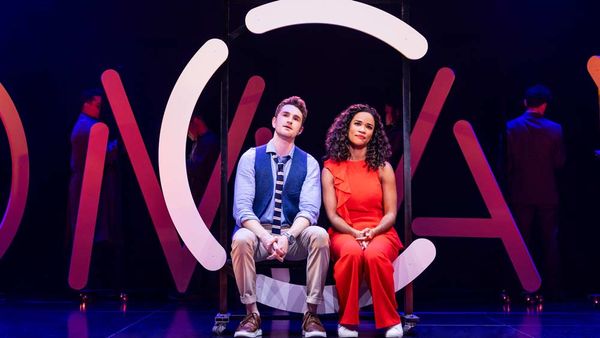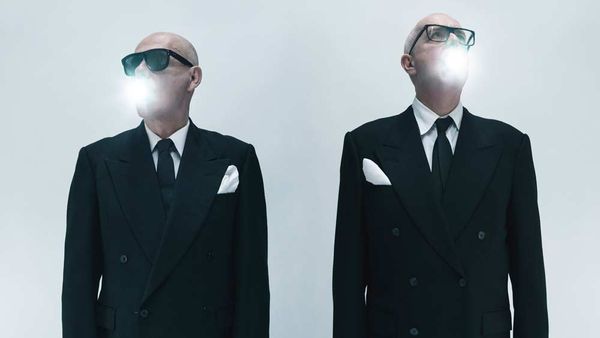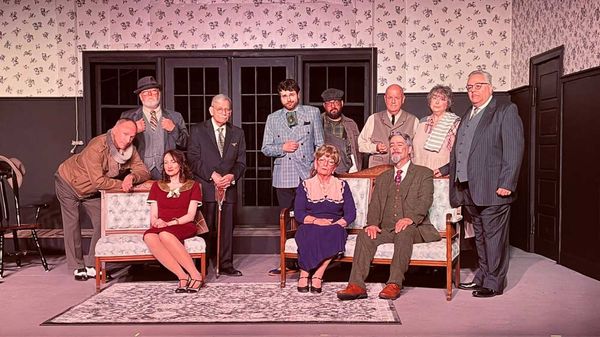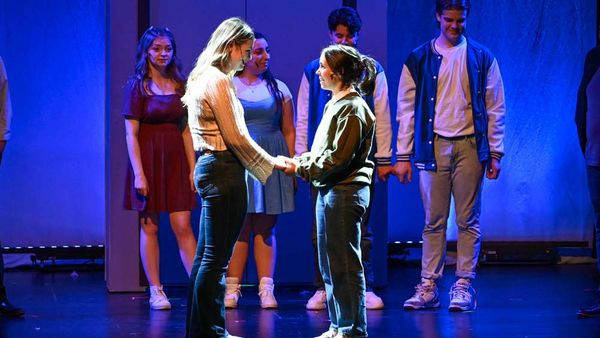Apr 4
Review: 'Ripley' Has New Talents, and Andrew Scott, in the Netflix Miniseries
Kilian Melloy READ TIME: 5 MIN.
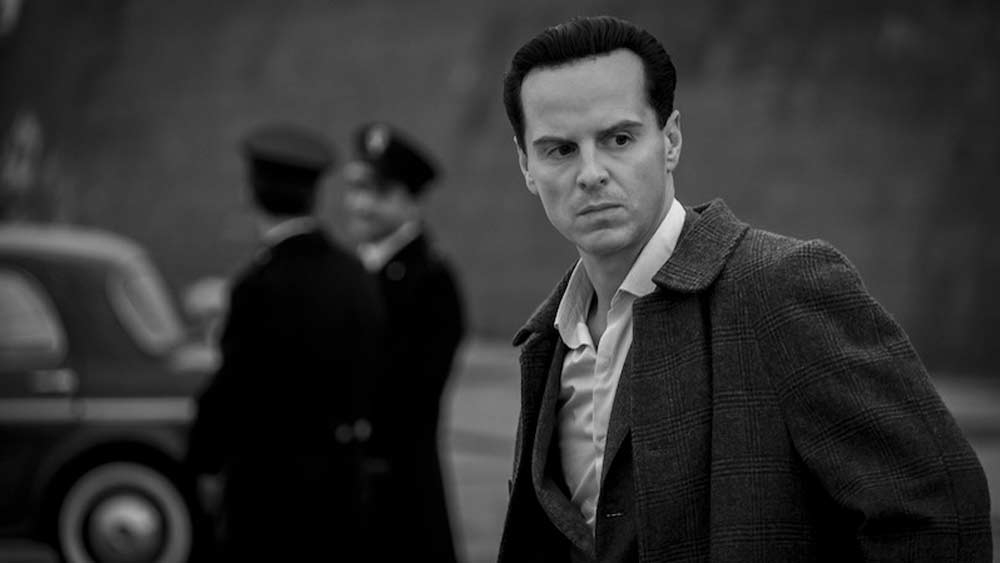
"All of Us Strangers" star Andrew Scott takes on novelist Patricia Highsmith's most celebrated character, playing Tom Ripley in Netflix's new eight-episode miniseries.
Strangely, though, despite Scott's status as an out gay actor, this take – written and directed by Steven Zaillian – ignores the homoerotic subtext of the source material and previous cinematic portrayals of the character, showing us an antihero we root for not because he's warm and likable, but because we watch him blunder his way from one crime to the next, figuring out along the way what it takes to become a master con artists and, when need be, a remorseless killer. The fun here lies less in the sins Tom commits than the combination of guile and luck he relies on to escape consequences... even as a web of deceits grows up around him, getting trickier and stickier all the time.
The story starts off in 1960, with Tom Ripley (Scott) running petty scams in New York. Just as the walls start to close in, an opportunity presents itself: It seems a rich young ne'er-do-well named Dickie Greenleaf (Johnny Flynn) is frittering away his trust money in Italy, idling by the seaside with a girl named Marge (Dakota Fanning). Dickie's father, for whatever reason, mistakenly believes that Tom is old friend that might talk some sense into the wayward lad, and he offers Tom a first-class ticket and some money for expenses to sail to Italy and bring Dickie back into the fold.
Good luck there... especially since Tom has little interest in returning to the grey cityscape of New York. He's perfectly content to spend Greenleaf senior's cash while cozying up to Dickie and Marge... not that Marge likes him. It's questionable whether Dickie likes Tom, either – there's less bonhomie to Dickie here than Jude Law bonhomie served up in Anthony Minghella's 1999 movie "The Talented Mr. Ripley," which is probably where most viewers familiar with the story will have encountered it before. (There have been a couple of versions, including the 1960 French film "Purple Noon" with Alain Delon; other Highsmith novels featuring Tom Ripley have also been made into movies, including the Wim Wenders 1977 classic "The American Friend" and Liliana Cavani's 2002 project "Ripley's Game," starring John Malkovich – who, by the way, makes a cheeky appearance here, as well.)

Source: Netflix
Whereas Minghella's movie gave a galvanic gay undercurrent to the scenes between Matt Damon and Jude Law – and hinted at a perverse, though perhaps sincere, attraction between Damon's Ripley and Gwyneth Paltrow's Marge – there's zero sexual spark between Tom and, well, anyone in Zaillian's version. "I'm not sure he's normal enough to have any kind of sexuality," Marge tells Dickie at one point, as they debate how best to rid themselves of Tom's presence.
Anyone who has traveled abroad and encountered perplexing situations thanks to differing cultures and an inability to speak the local language will appreciate Zaillian's careful scripting of Tom's first days in Italy, as well as Scott's unsure, slightly put out responses to the inevitable frustrations that arise. The show's gorgeous black and white cinematography – apt both for setting and for genre, this being a noirish take of the story – do justice to the natural beauty of Italy, as well as its venerable streets, passageways, and architecture. New York this is not, but criminals speak the same venal language the world over and it's not long before Tom is making connections with some of the local shady characters; he can spot a scam a kilometer away, whereas Dickie is completely taken in by even the most obvious ruse.
In a turnabout, though, Tom seems utterly at a loss when it comes to most other things in life.... though he proves to be, as one character notes, a "quick study." (Kudos to Andrew Scott for his Italian. For that matter, kudos to Zaillian for not always relying on subtitles, but finding other ways of overcoming the language gap on behalf of the viewer.)
It's that quality of inexperience and naivete that the show trades in, not just for Tom but for the whole cast, along with a pitch-black sense of humor that relies on slow pacing and the innately funny quality of absurd repetition. Scott's Ripley is clueless, reckless, and not quite as bright as he ought to be. He's cunning and cool, though, unlike Damon's hot-blooded take; thanks to the series' scripting and direction, Scott's version of Ripley is just a bit sharper than the world-weary Italian cops that never quite seem up to the task of nailing him.

Source: Netflix
That's a less puzzling trope than the way Ripley's victims more or less walk right into his homicidal arms. This isn't Zaillian's fault, being baked into the source material, but even so the series doesn't rise above a sense that the characters are motivated less by authentic human impulses than the needs of the story.
That said, Zaillian does find fresh aspects of the characters and their dynamics. Marge, in particular, is well-served by the broader canvas of an eight-episode miniseries, while Tom is shown as more psychologically complex than he might at first appear – not tormented by remorse so much as haunted by primal fears, a deep unease around water among them, which gives additional tension to various scenes involving rowboats and Venetian canals.
Don't be fooled, though; if murder is the most direct way of getting between two points, Zaillian's Ripley will unhesitatingly go that route. Thanks to Andrew Scott's cold, charismatic take, anything bulky enough to serve as a weapon seems to take on a sinister aspect as soon as it's in Tom's hands, and that, as much as the lovely production design and appealing cast, keeps you watching.
"Ripley" premieres on Netflix April 4.
Kilian Melloy serves as EDGE Media Network's Associate Arts Editor and Staff Contributor. His professional memberships include the National Lesbian & Gay Journalists Association, the Boston Online Film Critics Association, The Gay and Lesbian Entertainment Critics Association, and the Boston Theater Critics Association's Elliot Norton Awards Committee.

